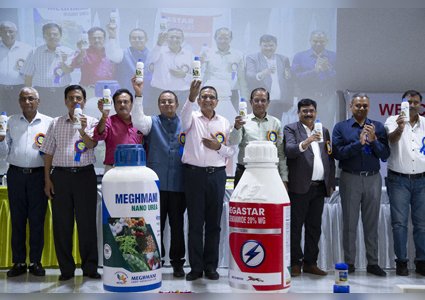By Amit Sinha, Co-founder, Unnati Agri
India’s agriculture industry is on the cusp of a major technological transformation, which is a pivotal moment after decades of growth. The sector has been witnessing robust growth with an average annual growth rate of 4.6 per cent over the last six years. Emerging developments include accurate crop forecasting, sensor technology, robotics, etc., which heralds a paradigm shift in how agriculture is used and managed. Several emerging trends are set to reshape the practices and management of agriculture in India in the coming year of 2024. Let’s delve into these transformative developments.
Technology adoption is escalating, with precision farming, drones, and IoT devices gaining prominence for improved crop monitoring, management, and resource utilization. The aim is to increase yields, save costs and improve business processes to make agriculture more efficient while increasing income. In this context, AgriTech emerges as a catalyst, bringing transformative and sustainable shifts in farming practices. The primary objective is not only to enhance the quality and quantity of crops, optimize livestock management but also to strive towards achieving a sustainable future.
Sustainable Agriculture
In India, a growing emphasis on sustainable and organic farming practices demonstrates a dedication to environmental conservation. This change aims to reduce agriculture’s environmental effect, fostering a more climate-conscious and sustainable approach within the farming sector. One of the most prominent trends in sustainable farming is the use of regenerative agriculture practices. This strategy emphasizes the significance of soil health and advocates the adoption of soil organic matter-building practices.
Government initiative
The active implementation of diverse government schemes and initiatives, with a specific focus on elevating farmers’ income, improving irrigation facilities, and enhancing overall agricultural productivity, stands out as a pivotal pathway for fostering the growth of agriculture.
Moreover, regarding market linkages, it is evident that technology platforms consistently act as facilitators, strengthening the connections between farmers and markets. This leads to an improved system that guarantees better prices for agricultural produce, consequently contributing to the overall economic prosperity of farmers.
Another observable trend is diversification, wherein farmers are venturing into cultivating new crops and engaging in additional activities such as dairy, poultry, and aquaculture. This will not only enable them to to establish multiple income sources but also enhances the resilience of their farms.
Agri-Fintech
Last but certainly not least is the rise of Agri-Fintech. The agricultural sector is witnessing an increasing adoption of financial technology, providing farmers with enhanced access to credit, insurance, and various financial services.
In 2024, developments in Indian agriculture will lead to a paradigm shift toward a more technologically advanced, sustainable, and resilient sector. This transformation not only tackles current difficulties, but also creates the groundwork for a future-ready agricultural sector capable of meeting the increasing demands of a growing population while encouraging environmental care.
Technological revolution in agri sector
The future of agriculture in India is on the brink of a technological revolution, with several advancements poised to transform the sector. As per an EY report, agri-tech startups in India have the potential to reach a market worth $24 billion by 2025.
Agricultural technology aims to make fieldwork more efficient and convenient. Every year, many innovations, sometimes breakthrough technologies, appear in agriculture. With the modernization and expansion of the agricultural industry, it is increasingly important for agricultural consultants, food manufacturers and industrial managers to stay abreast of the latest technological standard. Numerous technologies are contributing to increased efficiency within the agricultural ecosystem.
In this dynamic landscape, precision agriculture is positioned to thrive. This growth is fueled by the widespread adoption of drones and unmanned aerial vehicles (UAVs) for real-time crop monitoring. Simultaneously, the integration of Internet of Things (IoT) devices and sensors will provide invaluable data on soil health and environmental conditions. Artificial intelligence (AI) and machine learning (ML) will play pivotal roles, offering predictive analytics for optimized crop management and image recognition for early detection of potential issues.
Blockchain tech
Blockchain technology is expected to contribute to transparency in the agricultural supply chain, ensuring fair compensation for farmers and providing consumers with information about the origins of their food. Biotechnology may introduce genetically modified crops with enhanced resistance to pests and adverse weather conditions. The deployment of autonomous vehicles and robotics is set to revolutionize farm operations, resulting in reduced labor costs and improved overall efficiency.
Mobile applications that facilitate direct connections between farmers and buyers, coupled with features such as weather forecasting, empower farmers by providing them with crucial information. The integration of renewable energy sources, such as solar power, addresses sustainability concerns, while water management technologies like drip irrigation optimize resource utilization.
Government initiatives, combined with the widespread adoption of data analytics and farm management software, are crucial components propelling this technological revolution. The overarching goal is to enhance productivity, reduce costs, and contribute to a more sustainable future for Indian agriculture.
By Amit Sinha, Co-founder, Unnati AgriIndia’s agriculture














